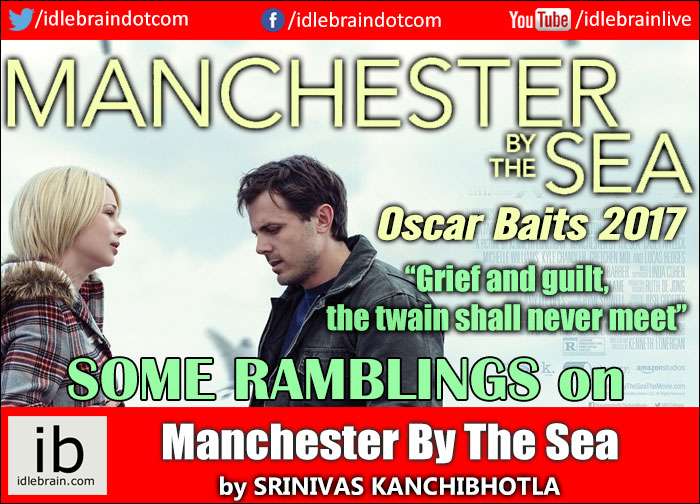
Grief is cathartic, the more it is let out, the faster it heals, per one school of thought. There is a symbiotic relationship between grief and pardon. If the source of the grief is someone else, the pardon process becomes easy, relatively. And it is only a matter of time before the pardon letter is handed out and all is forgiven, if not entirely forgotten. Grief turns into a vicious cycle of pain and blame when the source pain is one's own decisions, and even more, when those decisions have inflicted unspeakable damage to the near and dear. Clinically, it is called "referred pain". That's when grief becomes a haunting presence in one's existence, never allowing the person to ever absolve himself of the actions. In those situations, psychiatrists use the oft-heard phrase - "stop blaming yourself", which is simply another way of saying, that's the price of living in the interconnected world and there's very little that anybody can do about it. The traffic accidents in everyday life, the collateral count in everyday wars, all add up to what can be termed as, like the butterfly effect, the by-stander effect. The only crime here is the crossing of the path of the victim with the perpetrator, however "innocent" the crime might be. And now, if the perpetrator has a conscience, he is doomed for the rest of his life carrying the burden of his act, unable to ever pardon himself, wallowing in the never ending grief looking for absolution that would never come. Recent news about a youngster in his early 20s, driving under influence, crashing his car into a vehicle on the opposite side of the road, killing a little kid and her family members instantly, made huge waves. Just how he would reconcile with that fact that his actions visited upon unthinkable horrors on an unwitting family for the rest of all of their lives, is something beyong anyone's comprehension or imagination. The society might punish the perpetrator for a limited amount of time for his thoughtless action, but what about the punishment that his own conscience hands out to him, every waking moment of his life? "Stop blaming yourself"? If only it were that easy!
'Manchester by the sea' is the study of one such grief of the protagonist, with never ending assault of guilt, blame and pain on his life because of one innocuous action of his that wreaked unfathomable havoc in not just his life but everyone around him. Amazingly, even with a material this ripe with all the melodrama and tragedy, the movie plays it pretty straight refusing to burden the painful past on life as it trudges along. It is that contrast that accentuates the tragedy even further, like those unspoken words that convey more. The pain lurks behind every moment even in seemingly lighter times serving as a constant reminder that life as he knew it or had it before the tragedy was never going to be the same again. Imagine the life of the parents who outlive their young one(s)! That is one broken piece of glass that can never be put back together again. The movie feels as though it is not obligated to any plot, or story or any other structure that constitutes a drama, depicting life at its most mundane best, in its daily routines, in the silent moments of reflections, in its fleeting smiles and constant fixtures of gloom. The editing style needs to be really applauded for being as brutal and unkind as the unfortunate events that visit upon the protagnist, staying for not more than a couple of minutes on every scene, however important and heartfelt it might be. There is a particularly heart wrenching scene between the two key characters that are affected the most by the tragedy, with one trying hard to reopen the wound and revisit the incident to give it a proper burial and the other simply shutting it off unable to bear witness to it all over again. There are very few words spoken in the scene and it is all over in under a minute. The scene could have been wringed/stretched to any length and it would still have been justified. However the the powers that be decided that the worst tragedy in any one's life is the inability to share it or unload it and no amount of time can bring any closure to it, and so, the cut becomes merciless and exacting.
Casey Affleck pours his heart into the role of a man who sees no moral redemption. His perceived liability of whiny voice becomes an asset here to the role, making all the rejecting and dismissing of even a speck of upliftment that comes the character's way feel nothing but natural. There is no underplay here either, with the editing and (near absence of) dialogue doing majority of the heavy lifting. Grief might be cathartic in some cases, in others, it is definitely compounding!
checkout http://kanchib.blogspot.com for Srinivas's Blog.
